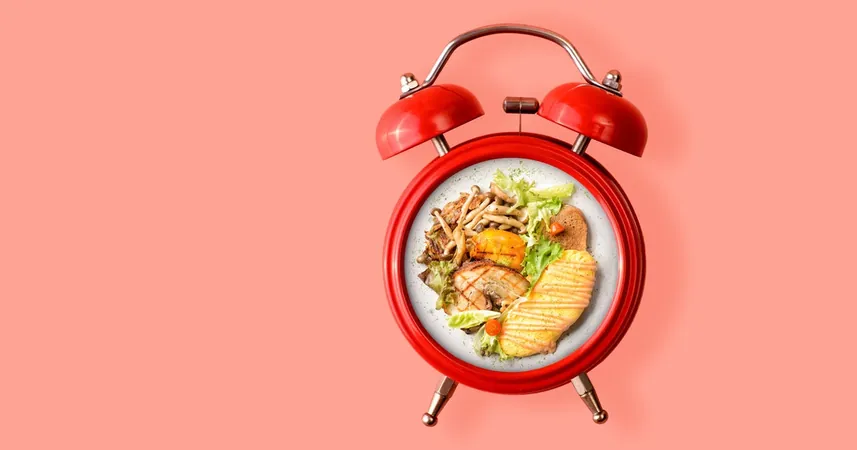
Is Intermittent Fasting Just a Mask for Eating Disorders?
2025-05-20
Author: Ken Lee
The Rise of Intermittent Fasting
Scroll through TikTok for just a moment, and you'll find fitness influencers raving about intermittent fasting. This eating strategy is marketed as a lifestyle change rather than a traditional diet, featuring plans like 16:8 (fast for 16 hours, eat for 8) or 5:2 (normal eating for five days, fasting for two). Claims of benefits range from reduced inflammation to better gut health and weight loss.
A Hidden Danger
However, experts are sounding the alarm that intermittent fasting could disguise disordered eating behaviors. With around 28.8 million Americans likely to face an eating disorder in their lifetime, it’s essential to scrutinize this trend. While strict diets like anorexia or bulimia have specific diagnostic criteria, disordered eating can affect anyone grappling with body image issues or psychological distress around food.
The Social Acceptability of Fasting
Unlike outright starvation, intermittent fasting often passes unnoticed. "It can serve as a socially acceptable facade for disordered eating behaviors," warns registered dietitian Becky Mehr. Although it is often portrayed as a path to improved health or simplified eating, it can spiral into harsh self-imposed restrictions, particularly for those with a history of food-related struggles.
Exposing the Risks
Dr. Anne Marie O’Melia from the Eating Recovery Center highlights that for individuals susceptible to eating disorders, any form of caloric restriction can exacerbate the situation. Recent studies have correlated intermittent fasting with patterns such as binge eating and even purging. "Dieting and restriction are the top indicators of eating disorder development, especially in young adults," she notes.
Mindset Matters
If you're questioning whether intermittent fasting is safe, the answer lies in your mindset. Experts suggest that if you can fast without obsessive thoughts or strict food rules affecting your daily life, it could be fine. But for many, it can quickly devolve into disordered eating, manifesting as anxiety over food rules, avoidance of social situations involving meals, or intense guilt after eating.
Who Should Avoid Intermittent Fasting?
Dietitians generally advise against intermittent fasting for most people, especially those with a history of eating disorders or mental health challenges. Ignoring hunger cues can lead to a fraught relationship with food and exacerbate emotional stress.
A Healthier Alternative: Intuitive Eating
Experts recommend prioritizing intuitive eating as a healthier approach. This method encourages listening to hunger cues and enjoying diverse foods without guilt. It emphasizes balance, variety, and emotional health alongside physical well-being.
Final Thoughts
While intermittent fasting may seem harmless and even effective initially, for too many, it can become a pathway to severe and long-lasting eating disorders. It's crucial to handle food with compassion rather than punitive measures. Pay attention to your body—the ultimate guide to how and when to nourish yourself.





 Brasil (PT)
Brasil (PT)
 Canada (EN)
Canada (EN)
 Chile (ES)
Chile (ES)
 Česko (CS)
Česko (CS)
 대한민국 (KO)
대한민국 (KO)
 España (ES)
España (ES)
 France (FR)
France (FR)
 Hong Kong (EN)
Hong Kong (EN)
 Italia (IT)
Italia (IT)
 日本 (JA)
日本 (JA)
 Magyarország (HU)
Magyarország (HU)
 Norge (NO)
Norge (NO)
 Polska (PL)
Polska (PL)
 Schweiz (DE)
Schweiz (DE)
 Singapore (EN)
Singapore (EN)
 Sverige (SV)
Sverige (SV)
 Suomi (FI)
Suomi (FI)
 Türkiye (TR)
Türkiye (TR)
 الإمارات العربية المتحدة (AR)
الإمارات العربية المتحدة (AR)